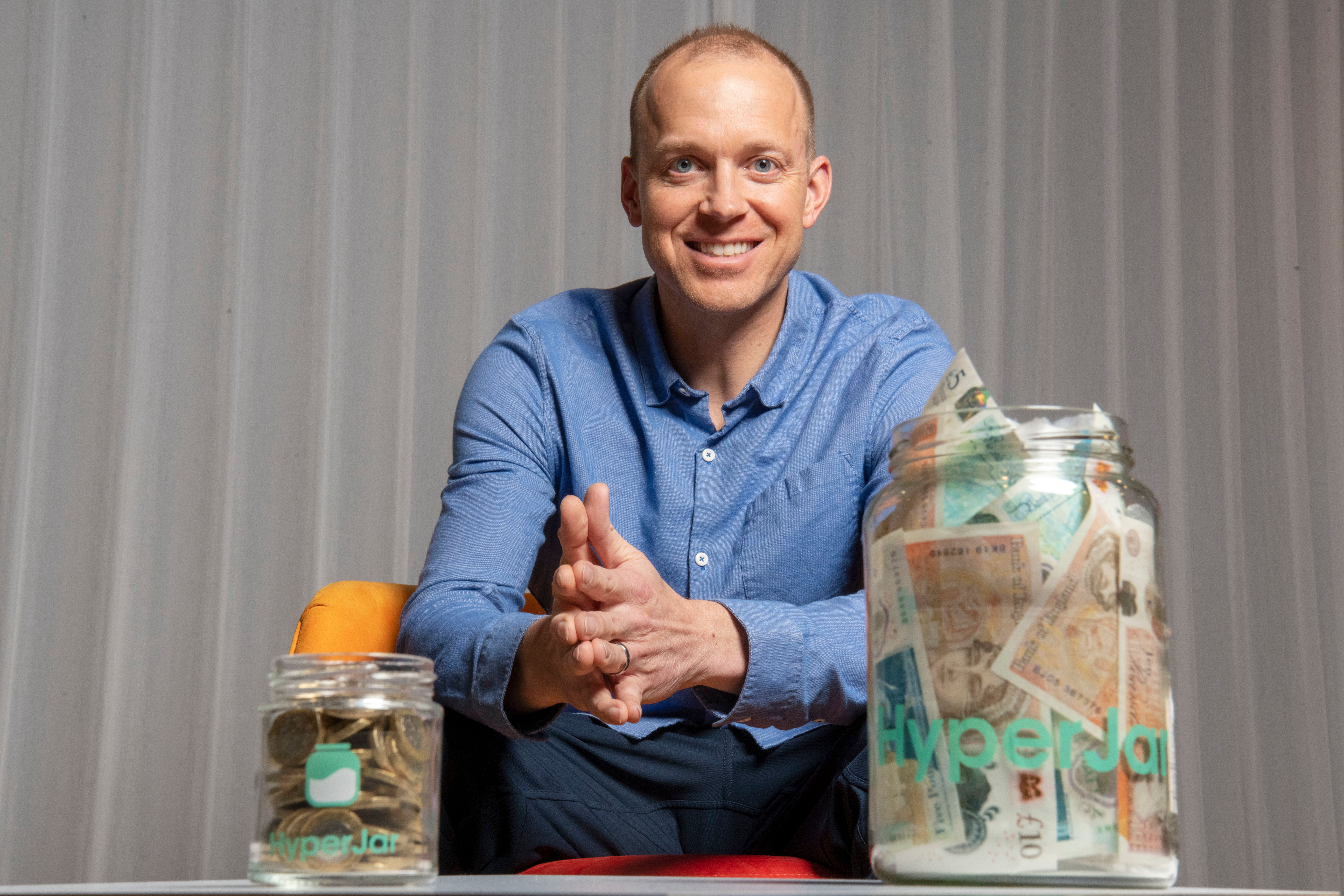
Sustainable consumption: hope in a HyperJar
New app designed to help people save, budget and spend more wisely

New app designed to help people save, budget and spend more wisely
By Angela Pause Faculty of EngineeringBack in the day — think of your grandparents' time and before — people would stuff a few dollars into some jam jars each week as a way of budgeting for expenses and saving for big-ticket purchases from Christmas presents to a new sofa.
It was an easy and free way to see funds go in — and out — of the jars and to make sure there was enough for all the different expenses and, crucially, that you didn’t inadvertently overspend.
Yes, life was like this before direct deposits, automatic payments and e-transfers. What you lacked in convenience, you made up for with the visceral, intentional act of budgeting and saving. “Jam jar” budgeting was simply part of financial responsibility and controlled consumption.
Fast forward a couple of generations and now most people may never see more than a few real dollars lurking in the recesses of their wallet. Paycheques are direct deposits, payments are automatically withdrawn, debit cards are replacements for cash and credit cards are used liberally.
For many, the visual connection with their hard-earned money has been lost. This disconnect is contributing to the spiralling consumer debt — in Canada, the average is $23,496 per person — that is ringing alarm bells for global economies.
Fintech entrepreneur Mathew Megens (BASc ‘98, electrical engineering) wants to reverse this worrisome trend.
Late last year, he and his 30-person team launched HyperJar, a digital version of jam jar budgeting designed to help people save, budget and spend more wisely.

Matthew Megens' new HyperJar app helps people be more thoughtful in how they budget for expenses and save money for the future.
“HyperJar helps people be more thoughtful in how they spend and it incentivizes savings,” says Megens, a former investment banker with years of experience in digital payment platforms. “We want to encourage sustainable consumption.”
Currently, HyperJar is only available in the United Kingdom, but it will soon be launched in North America. The app’s dashboard allows you to set up as many visual jam jars as you may wish, labelling them anything from 'rent', 'new sneakers' to 'Dyson vacuum' or 'trip to Bali.'
As you transfer your money into these “accounts” you can spend directly from them. The dashboard lets you easily see how much you have spent and how much is left.
Unique to HyperJar is a group jar that allows up to 30 people to put money in for a night out or a week away and not have to chase each other down for money. With individually set permissions, the communal HyperJar is transparent and secure, says Megens.
What has major retailers on board, and has allowed Megens to initially raise £7 million with more rounds coming in this year, is HyperJar’s “pay now, buy later” option. It allows users to lock in money with a partner merchant jar with companies such as Lidl, Shell, and Virgin Wines in anticipation of future purchases.
Each time you commit money to the partner merchant jar, you earn 4.8 per cent interest — considerably more than the average interest rate for a regular bank-based savings account of less than two per cent — allowing you to increase your purchase power with the company. Your merchant jar is like a “loyalty” card with financial rewards.
The app’s visual odometer shows how your money is growing in real-time in the merchant jar. When using the HyperJar pre-paid MasterCard, payments to the merchant are automatically debited from the right jar at the point of payment.
Megens, who has several Waterloo Engineering alumni on his team and is looking to hire more, is taking leading-edge technology and marrying it with behavioural economics to provide people with a proven way to manage their money more effectively and less painfully.
Unlike other fintech apps, Megens is adamant that HyperJar’s free and secure service will never offer anything that could potentially put users into debt.
“Unlike any other fintech app, we will never offer credit cards or instant loans. HyperJar is a fintech app for good,” says Megens.
Your grandparents would approve.

Read more
Upside Robotics secures new funding to accelerate the future of sustainable farming

Read more
Redefining capstone learning by bringing students, faculty and community partners together to tackle real-world challenges

Read more
New medical device removes the guesswork from concussion screening in contact sports using only saliva
The University of Waterloo acknowledges that much of our work takes place on the traditional territory of the Neutral, Anishinaabeg, and Haudenosaunee peoples. Our main campus is situated on the Haldimand Tract, the land granted to the Six Nations that includes six miles on each side of the Grand River. Our active work toward reconciliation takes place across our campuses through research, learning, teaching, and community building, and is co-ordinated within the Office of Indigenous Relations.